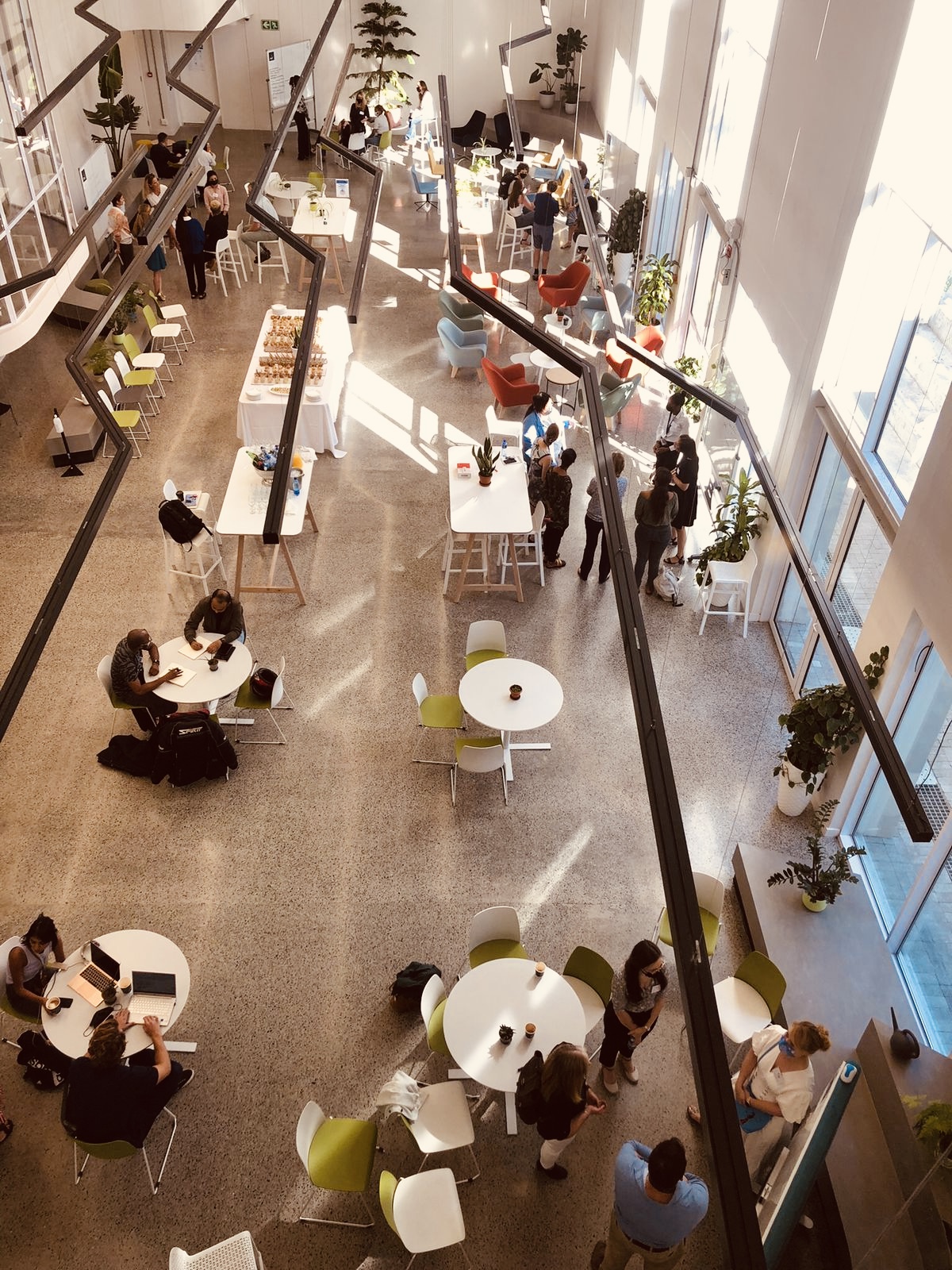Young Investigator's Forum Whiteboard Talks


The idea was simple – to explain your research to an audience of 5 or 6 postgraduate students and fellow researchers using only a pen and a whiteboard and the prompt question provided. The hall was abuzz with excited conversation and the squeak of markers as concepts were drawn out to the nodding, though sometimes momentarily bewildered, faces of onlookers. Five ‘big honchos’ roamed the hall: heads of institutes, funders and the like, ducking into groups to observe and lend their expertise.
This was the scene at the UCT Neuroscience Institute at the Young Investigator forum’s first event of the year on the 25th of March 2022. An event of this nature has been in the works for a while, originally based off the idea of ‘Chalk Talks’ referring to using blackboards for the same purpose, say organizers’ Nynke Groenewold and Ursula Rohlwink. Its goal was to provide an opportunity for researchers and senior students to get to know one another on a much deeper research level, which could provide opportunities for collaboration in the future. Collaboration is one of the main aspirations of the Neuroscience Institute as it houses all the neuroscience disciplines under one roof and aims to build linkages between them, promoting interdisciplinary research on a foundation of disciplinary excellence.
The questions posed included ‘What about your research in the past year have you found most inspirational?’, ‘How can a multidisciplinary approach add value to your research?’ and ‘What makes you a neuroscientist?’.
The circulating whiteboard presentations were finished off with snacks and drinks and informal chatting and networking, most people’s favourite part of the event.
The students found that the event served to make all the investigators much more approachable and were fascinated by the spectrum of research going on that they didn’t know about. They were particularly grateful to be included because, they said, they would never normally be brave enough to approach these researchers on their own and they now have potential contacts for learning new methodologies, furthering their studies or transitioning to postdoctoral positions.
The researchers found the event very stimulating, were able to identify other researchers with similar interests to themselves and had good engagement with their talks.
The scene was merry with lots of jovial chatter over snacks and the gleam of enjoyment of getting to revel in the science. A day to remember at the Neuroscience Institute fostering communication and collaboration. The idea was simple really.

